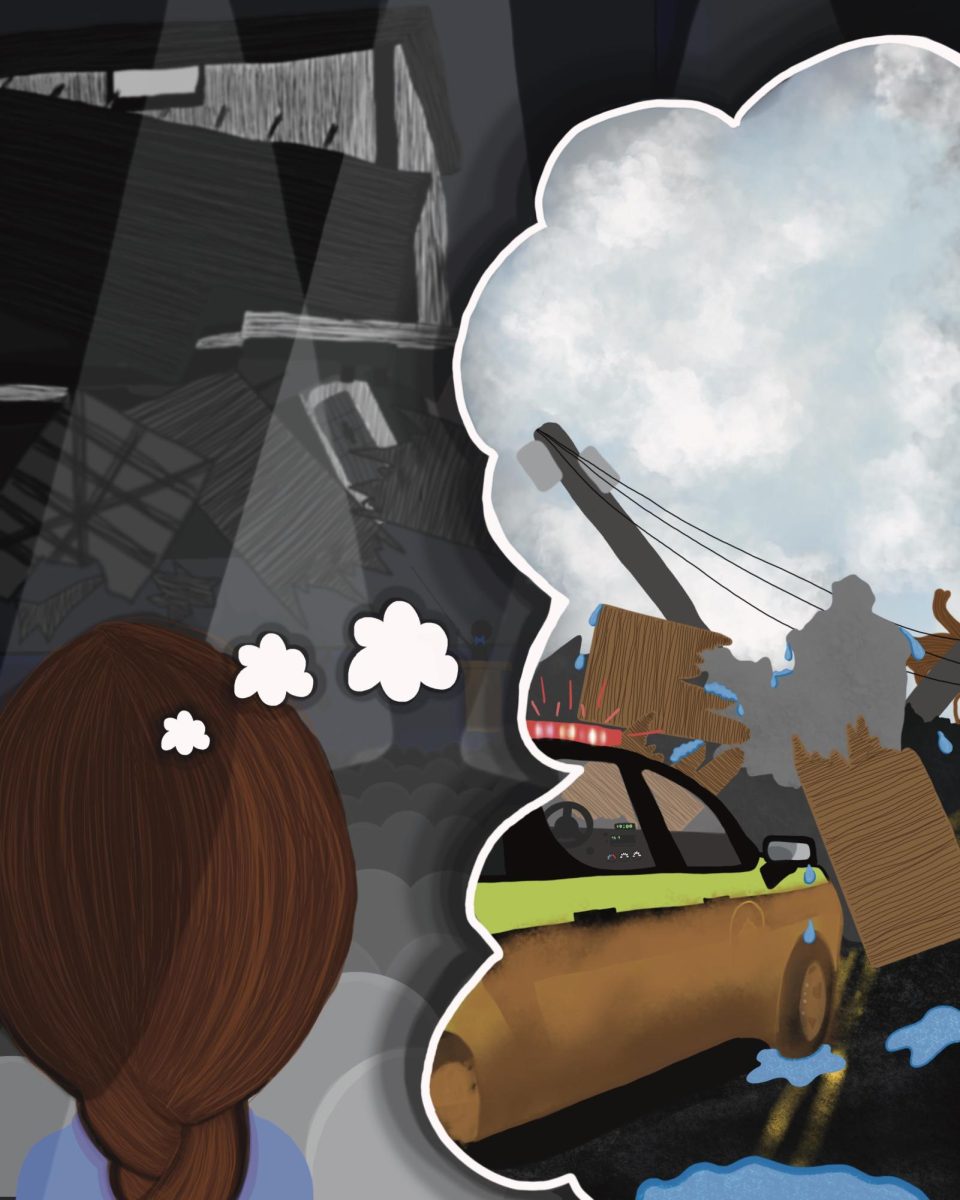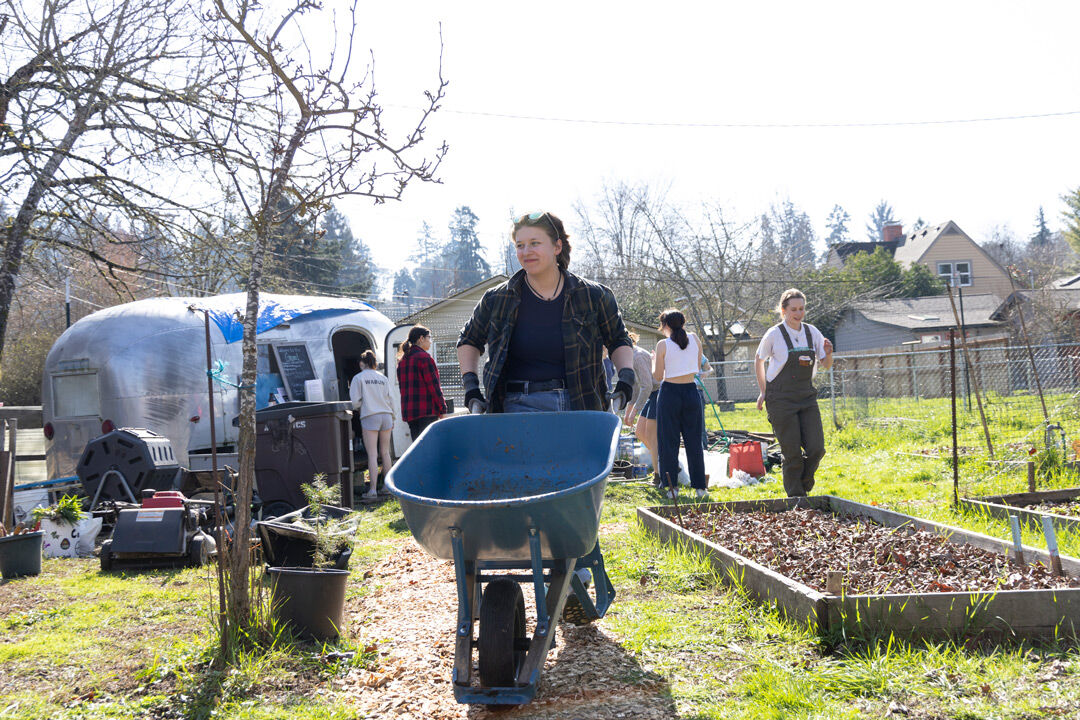Stepping into an educational center as an outsider evokes the same bewilderment and anxiety of stumbling through a crowded market. To the left, there’s a room of two adults scrambling to comfort roughly six babies. Down the hall are classrooms filled with laughter, tears and yelling. Running back and forth from the classroom to her office to wherever else she is needed is the director of Oak Street Child Development Center, Cindy Bellamy. It’s chaos, but Bellamy says it’s controlled chaos.
Bellamy works around the clock with an objective in mind. “My goal is to make sure that all of the children know how to deal with other kids before they hit public school,” Bellamy says.
Oak Street CDC is a childcare facility located in the heart of downtown Eugene and provides childcare for kids ages six weeks to five years. Bellamy started at Oak Street after its first year of opening and has worked there for the past 29 years. Eugene has changed since then, but the need for good childcare remains.
Recent data published from Oregon State University confirms that every county in Oregon is considered a childcare desert for children ages 2 and below. For kids ages 3-5, 75% of Oregon’s counties are considered childcare deserts. There is not a single county in Oregon that meets the childcare needs of its community.
Between tours, waitlists and rejections, parents like McKenna Knapp are finding the search for decent childcare difficult. Knapp is a new mom who started sending her one and a half year old child to Oak Street in September 2020. But she started looking for childcare when she was six months pregnant — she was the 12th person in line for a spot at Oak Street’s infant care. Knapp was fortunate enough to land a spot but says the process was nerve-racking.
“I mean you fall in love with a center, and you get comfortable with the idea that you might be able to drop your child off there someday, ” Knapp says.
Knapp is happy with her decision to stick with Oak Street and says the team does its best to deliver quality childcare. Every classroom is lined with overflowing bookshelves, arts and crafts litter the tables and there’s a quaint playground out front where children can play. However, with pandemic-induced closures, labor shortages and little to no help from the government, the burden of keeping daycare centers operating falls on the shoulders of daycare directors and teachers.
“It’s hard when people come in and you tell them how much they’re going to make and they say, ‘Well I can make that at Mcdonald’s,’” Bellamy says. “I try to help them understand that working in childcare is so much more.”
Oak Street has been hit hard by labor shortages. Currently, Oak Street has 15 teachers but needs three more to not be considered short staff. Bellamy says there are still positions that have yet to be filled since the pandemic started in March of 2020. The situation is so dire that Bellamy may have to fill a teaching position herself while they wait for more applicants. Although she would like to raise wages for her staff and offer a competitive salary to job prospectors, she says it is not feasible.
Oak Street operates as a nonprofit, but because it is private, it doesn’t receive much help from the government. As of right now, Oak Street’s income comes solely from tuition, which gets raised 2-5% year after year. Bellamy says this isn’t sustainable.
“There will come a time when families aren’t going to be able to afford that,” she says.
In April of 2020, unemployment peaked at around 15%, according to the U.S. Bureau of Labor. That number has since fallen to under 5%, but daycares and schools are still struggling to fill gaps in their staff.
The struggle to remain unscathed by the pandemic isn’t limited to Oak Street. Andy Dettman, director of the language immersion school New Dream, expressed similar concerns over staying afloat. One challenge they’ve been struggling to overcome is the financial and emotional strain on teachers.
“Every time we have to close, it’s like I don’t know what’s going to happen tomorrow,” Dettman says. “I don’t know if I’m gonna have a job in a week.”
Between financial insecurity and the emotional toll of teaching children all day, Dettman says convincing people to teach is a grueling task.
“This is a very stressful field to work in, and there’s not a whole lot of pay,” Dettman says. “Of course it’s become even more difficult with COVID.”
Annabelle Schwartz-Horney recently graduated from The New School and is currently in the market for a job. Schwartz-Horney has thought about teaching or working at a daycare but would rather find a job to advance her career.
“I have a handful of friends who are teachers and so passionate about it,” Schwartz-Horney says. “I think you really have to be into it to become a teacher.”
The underfunding and understaffing of U.S. childcare impact not only Eugene but states across the country. According to a study done by the Center for American Progress, there is only enough care to service 23% of infants and toddlers across 19 states in the U.S. Care for babies and toddlers is the most detrimentally affected by this cycle due to the steep cost it takes to keep these programs around.
Oak Street and New Dream are two of about 15 childcare centers in the Eugene and Springfield areas that offer infant and toddler care. Directors of both places recognize the importance of providing this scarce service but are cracking under financial pressure.
In January 2021, Dettman made the difficult decision to reduce capacity by 50% in New Dream’s infant room.
“I’ve already cut our hours back so I could avoid having to make that choice,” Dettman says. “I just couldn’t afford it any longer.”
Last March, President Joe Biden signed into law the American Rescue Plan. The bill includes relief for public schools and daycares impacted by COVID-induced closures and staff shortages. However, the bill will mostly benefit educational centers that are publicly funded and leave private institutions to rely on tuition and fundraisers to keep going.
Despite there being little help from the federal government, the state government has provided some financial relief to daycares. The Early Learning Division in Oregon has given out forgivable PPP loans to daycares that request them. The idea behind giving out these loans is to allow daycares to raise their wages to attract more potential teachers. However, Bellemy says she is wary about increasing wages because these loans aren’t a continuous source of income for the daycare.
“I just don’t know what programs are supposed to do when the loans run out,” Bellemy says. “It’s not sustainable.”
Financial pressure, mental health turmoil and a global pandemic have created a multitude of challenges for daycares to overcome. The desire to throw in the towel is strong, but Dettman and Bellemy say they have a community depending on them, and they are determined not to let anyone down.
“Childcare is important. It’s always been important. I feel like it’s even more important right now because families are struggling,” Bellemy says. “We just need to pull together and keep doing what we’re doing.”
This struggle to keep going during difficult times is experienced by parents as well as teachers and staff. Sabrina Hershey-Black is the full-time Aquatics Director at the Eugene YMCA, volunteer board member for New Dream and a mom to two young kids. Her children have both gone through the New Dream infant program. When New Dream was forced to shut down due to COVID exposure, Hershey-Black and her husband were spread thin trying to coordinate who could watch the kids.
“It’s just so stressful,” Hershey-Black says. “We’re waiting up at night wondering if the school is going to email us saying it’s closed.”
Hershey-Black isn’t fond of the anxiety that school closures enact, but she understands “daycares are doing the best with what they’ve got right now.”
When Hershey-Black isn’t working a full-time job or navigating care for her children during the pandemic, she’s advocating for better funding and resources for New Dream and other daycares in Lane County. Recently, Hershey-Black and Dettmen participated in a panel discussion with Kate Brown about how the pandemic has affected families emotionally and financially.
Hershey-Black says attending the panel confirmed this is an issue bigger than Eugene. At the panel, she says, parents and teachers across the state acknowledge the lack of support for daycares. Hershey-Black says now is the time to work on finding solutions.
Advocacy is where Hershey-Black says she feels her role in helping daycares survive lies. Whether that’s mobilizing parents to organize fundraisers for their schools or advocating for parents who can’t afford to send their children to childcare, Hershey-Black believes parents need to support one another.
“I’m a fortunate parent. I can drop my children off at two separate places and know that they’re being cared for and loved,” Hershey-Black says. “Not every parent can do that, and that breaks my heart.”


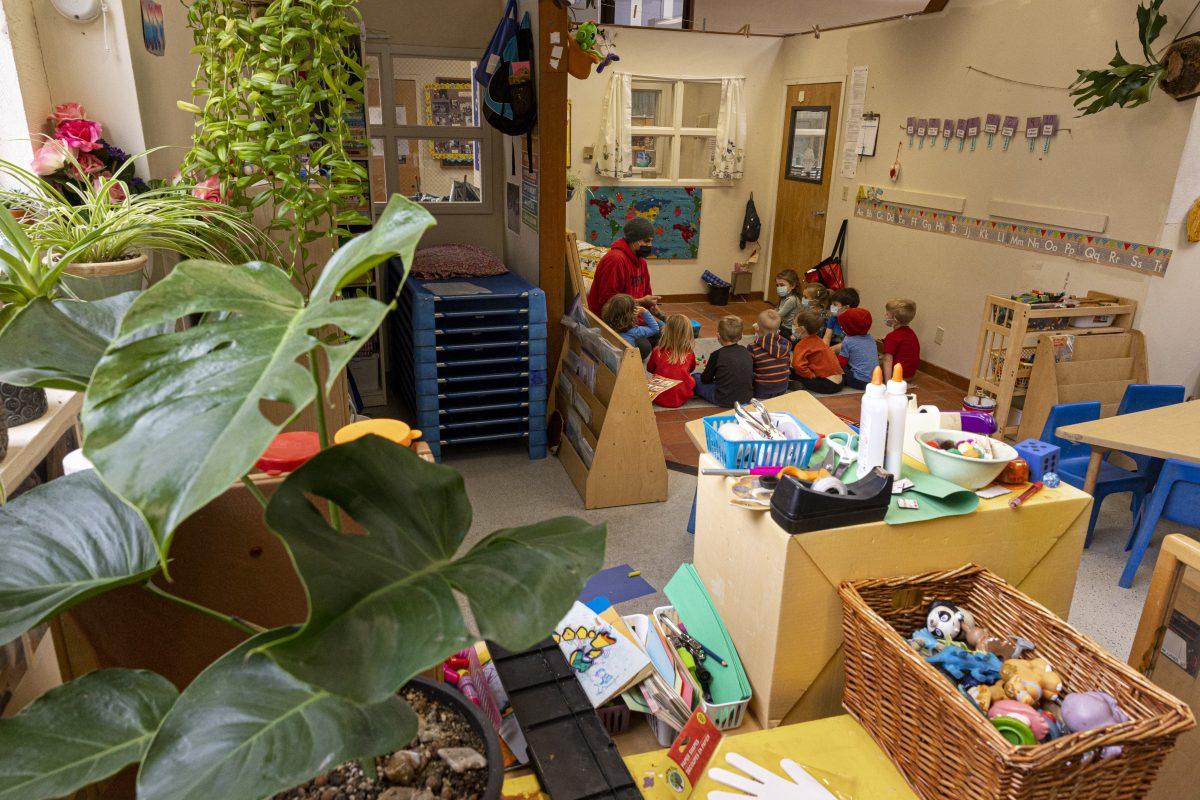
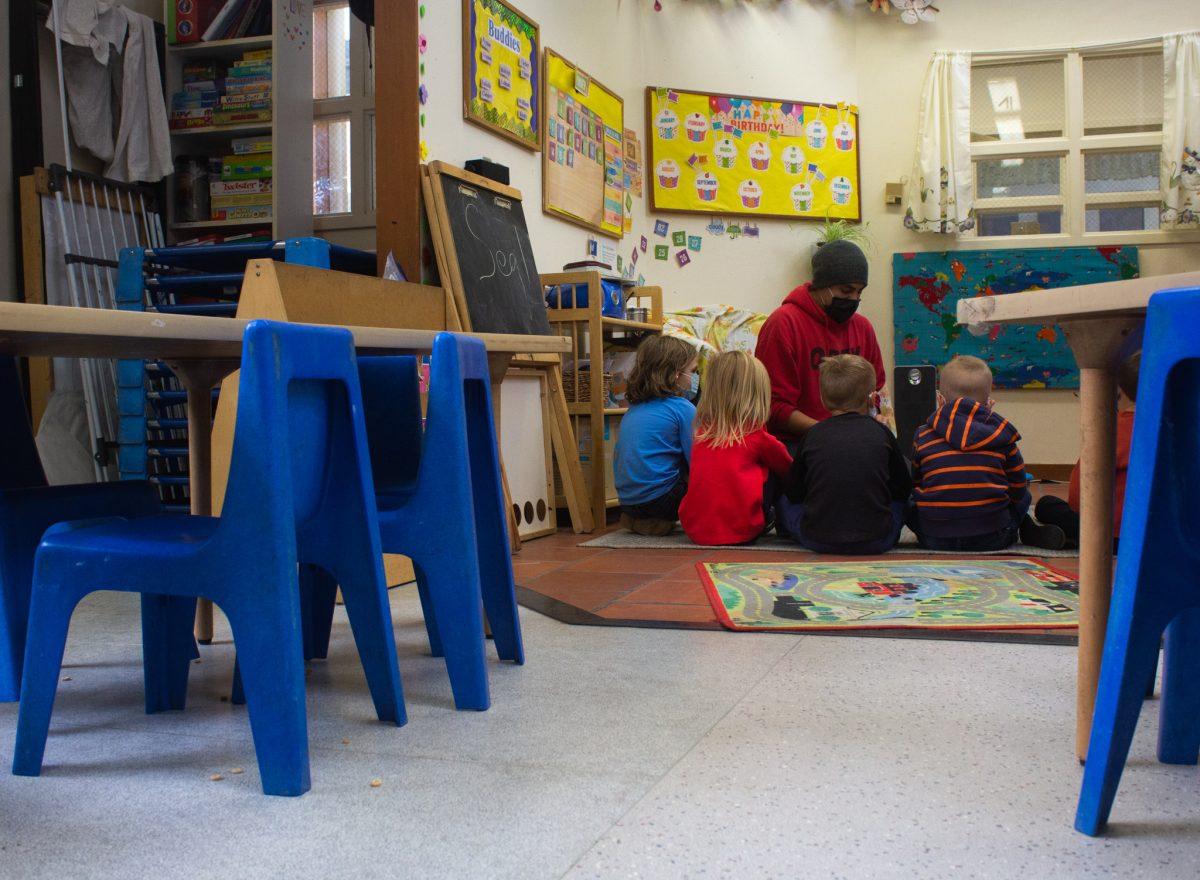




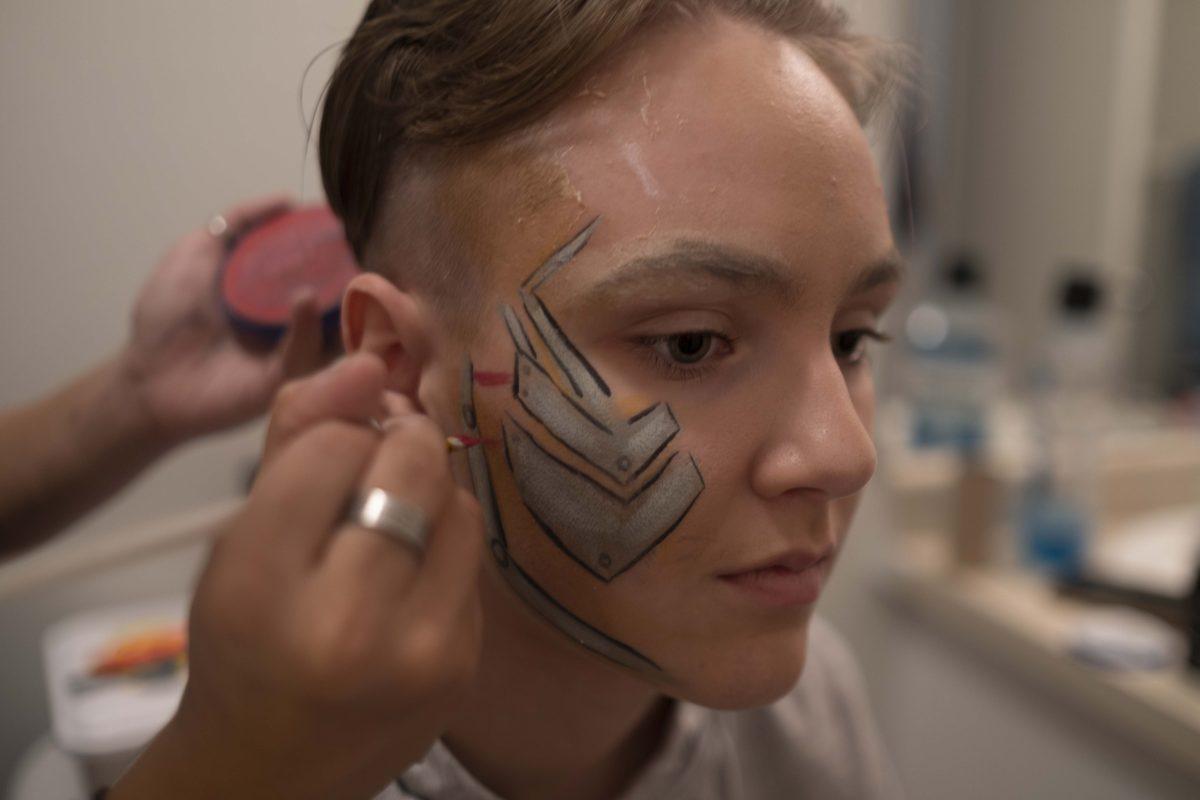



![[Photo Courtesy of the Lara Family]
Ruben embraces his beloved childhood goat, Katrina.](https://ethos.dailyemerald.com/wp-content/uploads/2025/05/katrina-1-1060x1200.jpg)







